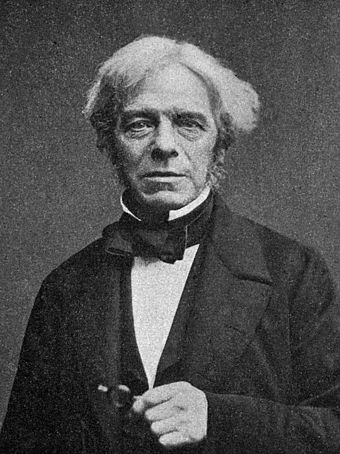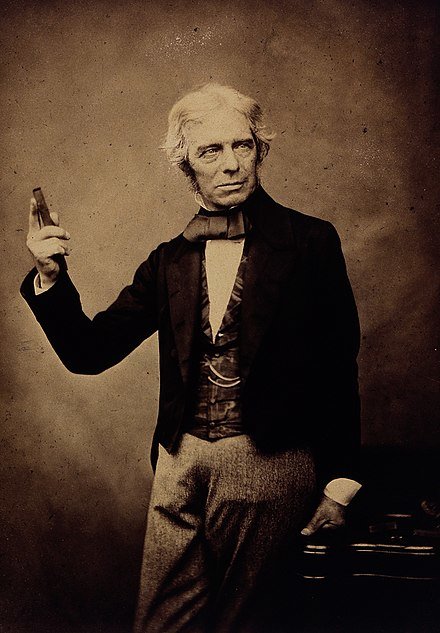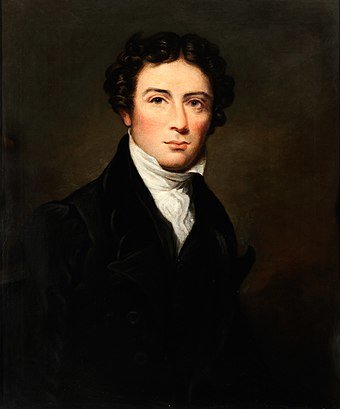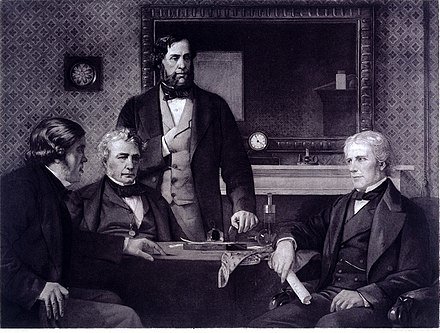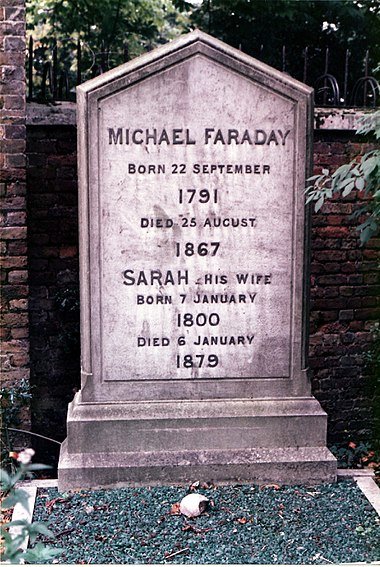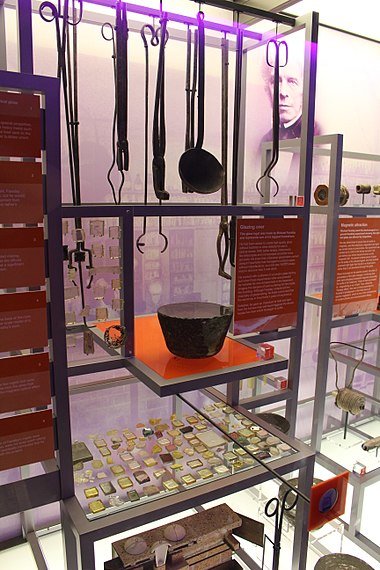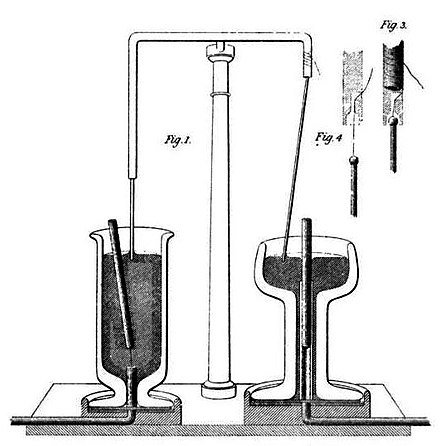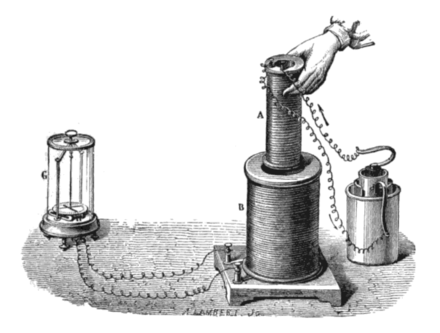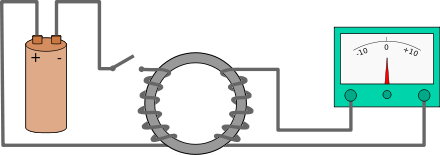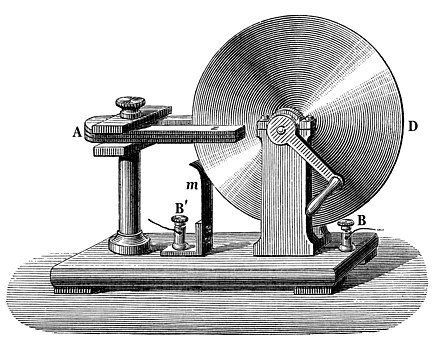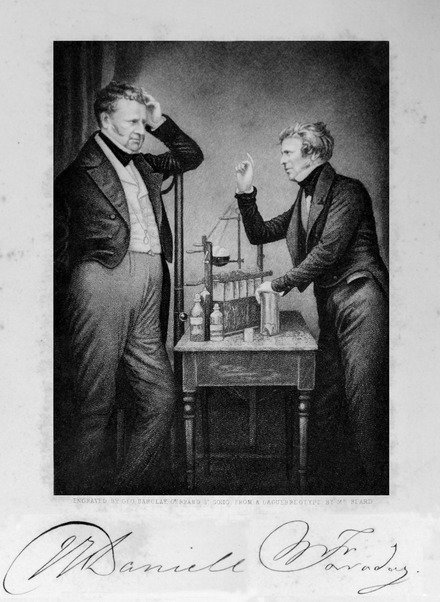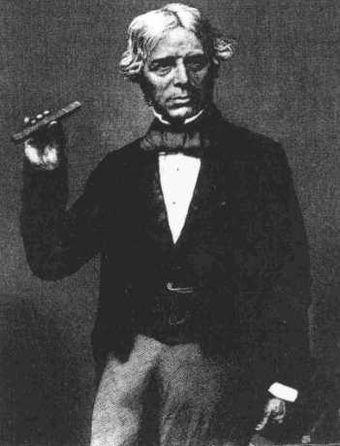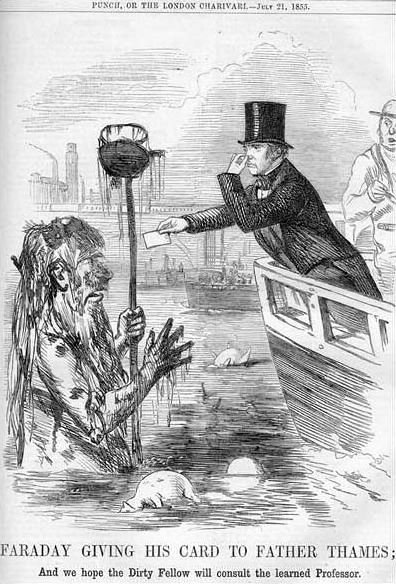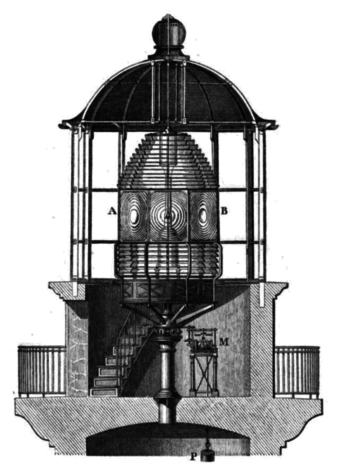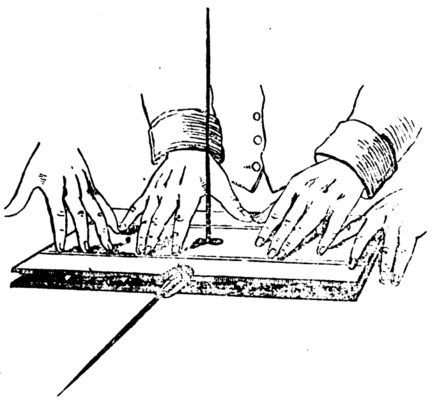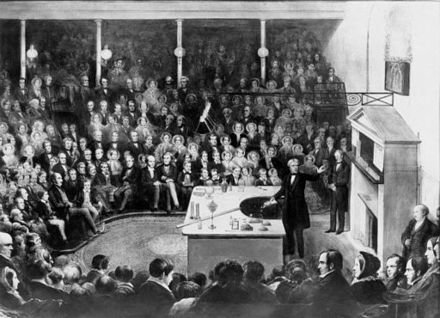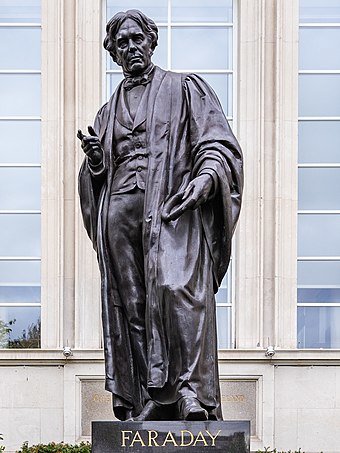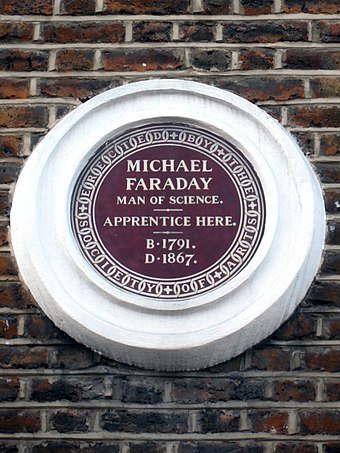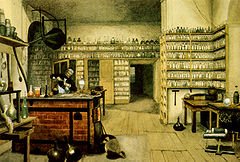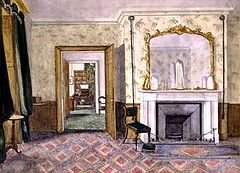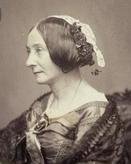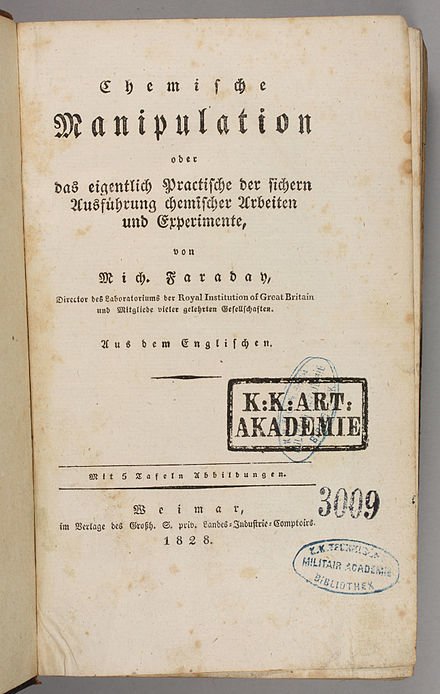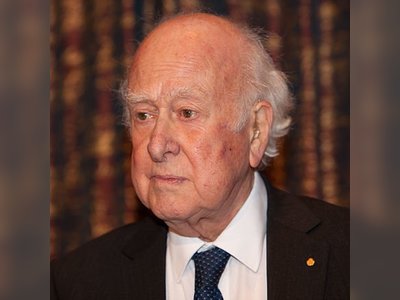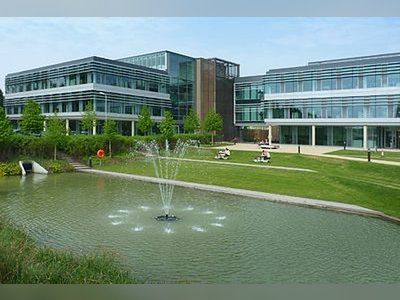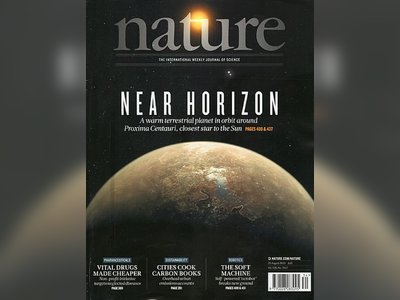British Heritage
Remember, Cherish, Learn.
beta
Michael Faraday - Electromagnetism
Contribution of Michael Faraday to British Heritage.
Michael Faraday, one of the most influential scientists in history, left a lasting legacy in the study of electromagnetism and electrochemistry, significantly contributing to British heritage. Born on September 22, 1791, in Newington Butts (now part of the London Borough of Southwark), Faraday's early life was marked by limited formal education. Despite this, his insatiable curiosity and passion for science led him to become one of the foremost experimentalists of his time.
Faraday's groundbreaking discoveries and inventions revolutionized the understanding and application of electricity, magnetism, and chemistry. His work laid the foundation for modern electromagnetic theory and made electricity practically useful for technology. Additionally, Faraday's significant contributions to chemistry, including the discovery of benzene and laws of electrolysis, further solidified his position as a prominent scientist and contributed to the advancement of British science.
Faraday's most celebrated achievements were in the realm of electromagnetism. In 1821, inspired by Hans Christian Ørsted's discovery of electromagnetism, Faraday set out to explore this intriguing phenomenon. His experiments with electromagnetic rotation resulted in the development of the homopolar motor, a pivotal milestone in the history of electromagnetism. These experiments led to the formulation of Faraday's law of electromagnetic induction, which demonstrated that a changing magnetic field could induce an electric current in a nearby conductor.
Subsequently, in 1831, Faraday conducted a groundbreaking experiment where he wrapped two insulated coils of wire around an iron ring. By passing a current through one coil, he observed the induction of a momentary current in the other coil. This phenomenon, known as mutual induction, is the cornerstone of transformers and many electrical devices we use today.
Faraday's work extended to the interaction between light and magnetism. He discovered the Faraday effect, which revealed that a magnetic field can rotate the plane of polarization of linearly polarized light. Furthermore, he proposed the concept of lines of force emanating from charged bodies and magnets, providing an essential visualization tool for electric and magnetic fields.
Faraday's accomplishments were not limited to electromagnetism. As a chemist, he made significant contributions to the field, discovering substances like benzene and investigating the properties of various gases. He also developed a system of oxidation numbers and popularized essential terminology such as "anode," "cathode," "electrode," and "ion."
Faraday's work extended beyond the confines of the laboratory. He actively engaged with society and the government, offering valuable scientific advice on diverse matters. He investigated industrial pollution, assessed air pollution at the Royal Mint, and helped improve lighthouse technology. Additionally, Faraday served on various commissions and provided expertise as an expert witness in court cases.
His public lectures, particularly the famous Christmas lectures at the Royal Institution, aimed to disseminate scientific knowledge among the general public. These lectures became popular among London's gentry and inspired many young minds. Faraday believed that science should be accessible and enjoyable, and he communicated complex ideas with simplicity and clarity.
Michael Faraday's contributions were widely recognized during his lifetime and continue to be celebrated to this day. He was elected a member of the Royal Society in 1824 and served as the first Fullerian Professor of Chemistry at the Royal Institution from 1833 for the rest of his life. His work garnered international acclaim, and he was elected as a member of prestigious scientific academies across the globe.
Faraday declined a knighthood and turned down other honors on religious grounds, remaining committed to living a simple life focused on scientific inquiry. His impact was felt not only in the scientific community but also in the literary world. Writers like Aldous Huxley admired Faraday, and even Albert Einstein held him in high regard.
Faraday's legacy endures through numerous awards, prizes, and institutions named in his honor. The Faraday Institute for Science and Religion and the Faraday Institution, both dedicated to scientific research and education, are testament to his enduring influence.
Michael Faraday's indelible contributions to the study of electromagnetism, electrochemistry, and chemistry have left an indelible mark on British heritage. His discoveries laid the groundwork for modern electromagnetic theory, powering the technological advancements of the future. Faraday's dedication to science, his innovative experiments, and his commitment to public education make him an exemplary figure in British scientific history. As an experimentalist, educator, and advisor, Faraday's impact on society was far-reaching, earning him the admiration and respect of his contemporaries and subsequent generations of scientists and thinkers.
Faraday's groundbreaking discoveries and inventions revolutionized the understanding and application of electricity, magnetism, and chemistry. His work laid the foundation for modern electromagnetic theory and made electricity practically useful for technology. Additionally, Faraday's significant contributions to chemistry, including the discovery of benzene and laws of electrolysis, further solidified his position as a prominent scientist and contributed to the advancement of British science.
Electromagnetism and Faraday's Major Discoveries
Faraday's most celebrated achievements were in the realm of electromagnetism. In 1821, inspired by Hans Christian Ørsted's discovery of electromagnetism, Faraday set out to explore this intriguing phenomenon. His experiments with electromagnetic rotation resulted in the development of the homopolar motor, a pivotal milestone in the history of electromagnetism. These experiments led to the formulation of Faraday's law of electromagnetic induction, which demonstrated that a changing magnetic field could induce an electric current in a nearby conductor.
Subsequently, in 1831, Faraday conducted a groundbreaking experiment where he wrapped two insulated coils of wire around an iron ring. By passing a current through one coil, he observed the induction of a momentary current in the other coil. This phenomenon, known as mutual induction, is the cornerstone of transformers and many electrical devices we use today.
Faraday's work extended to the interaction between light and magnetism. He discovered the Faraday effect, which revealed that a magnetic field can rotate the plane of polarization of linearly polarized light. Furthermore, he proposed the concept of lines of force emanating from charged bodies and magnets, providing an essential visualization tool for electric and magnetic fields.
Contribution to Chemistry and Scientific Terminology
Faraday's accomplishments were not limited to electromagnetism. As a chemist, he made significant contributions to the field, discovering substances like benzene and investigating the properties of various gases. He also developed a system of oxidation numbers and popularized essential terminology such as "anode," "cathode," "electrode," and "ion."
Faraday's Impact on British Society and Education
Faraday's work extended beyond the confines of the laboratory. He actively engaged with society and the government, offering valuable scientific advice on diverse matters. He investigated industrial pollution, assessed air pollution at the Royal Mint, and helped improve lighthouse technology. Additionally, Faraday served on various commissions and provided expertise as an expert witness in court cases.
His public lectures, particularly the famous Christmas lectures at the Royal Institution, aimed to disseminate scientific knowledge among the general public. These lectures became popular among London's gentry and inspired many young minds. Faraday believed that science should be accessible and enjoyable, and he communicated complex ideas with simplicity and clarity.
Recognition and Honors
Michael Faraday's contributions were widely recognized during his lifetime and continue to be celebrated to this day. He was elected a member of the Royal Society in 1824 and served as the first Fullerian Professor of Chemistry at the Royal Institution from 1833 for the rest of his life. His work garnered international acclaim, and he was elected as a member of prestigious scientific academies across the globe.
Faraday declined a knighthood and turned down other honors on religious grounds, remaining committed to living a simple life focused on scientific inquiry. His impact was felt not only in the scientific community but also in the literary world. Writers like Aldous Huxley admired Faraday, and even Albert Einstein held him in high regard.
Faraday's legacy endures through numerous awards, prizes, and institutions named in his honor. The Faraday Institute for Science and Religion and the Faraday Institution, both dedicated to scientific research and education, are testament to his enduring influence.
Conclusion
Michael Faraday's indelible contributions to the study of electromagnetism, electrochemistry, and chemistry have left an indelible mark on British heritage. His discoveries laid the groundwork for modern electromagnetic theory, powering the technological advancements of the future. Faraday's dedication to science, his innovative experiments, and his commitment to public education make him an exemplary figure in British scientific history. As an experimentalist, educator, and advisor, Faraday's impact on society was far-reaching, earning him the admiration and respect of his contemporaries and subsequent generations of scientists and thinkers.
- Michael Faradayen.wikipedia.org
